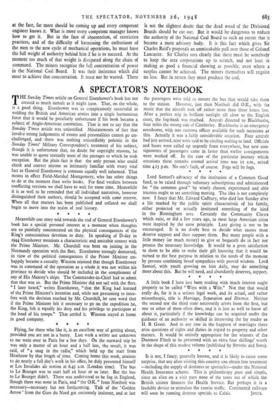Meanwhile one story told towards the end of General Eisenhower's
book has a special personal interest at a moment when thoughts are so painfully concentrated on the physical consequences of the King's conscientious devotion to duty. In speaking of D-day in 1944 Eisenhower mentions a characteristic and amicable contest with the Prime Minister. Mr. Churchill was bent on joining in the Normandy operation with the fleet. Eisenhower strongly demurred, in view of the political consequences if the Prime Minister un- happily became a casualty. Winston rejoined that though Eisenhower was in command of the operation as a whole it was not within his province to decide who should be included in the complement of any of His Majesty's ships. The Commander-in-Chief had to admit that that was so. But the Prime Minister did not sail with the fleet. "I later heard," writes Eisenhower, "that the King had learned of the Prime Minister's intention and, while not presuming to inter- fere with the decision reached by Mr. Churchill, he sent word that if the Prime Minister felt it necessary to go on the expedition he, the King, felt it equally his duty and his privilege to participate at the head of his troops." That settled it. Winston stayed at home in good .company.




































 Previous page
Previous page